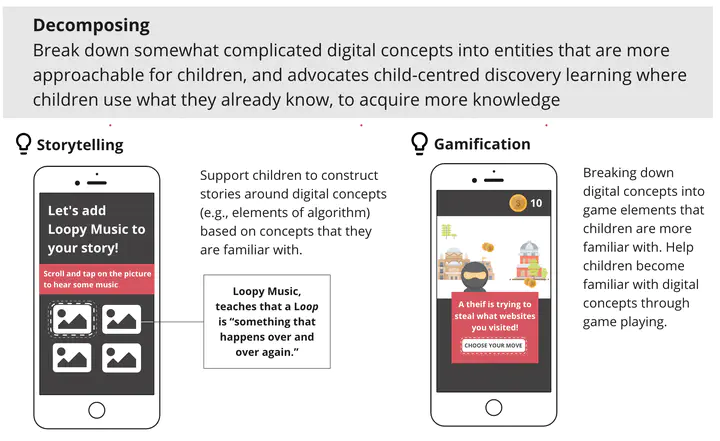12 Ways to Empower: Designing for Children's Digital Autonomy

Abstract
In recent years, growing research has been made on supporting children to become more autonomous in the digital environment around them. However, there has been little consensus regarding the conceptualisation of digital autonomy for children in the HCI community and how best they can be supported. Through a systematic review of autonomy-supportive designs within HCI research, this paper makes three contributions: a landscape overview of the existing conceptualisation of extit{Digital Autonomy} for children within HCI; a framework of 12 distinct design mechanisms for supporting children’s digital autonomy, clustered into 5 categories by their common mechanisms; and an identification of 5 critical design considerations for future support of children’s digital autonomy. Our findings provide a critical understanding of current support for children’s digital autonomy in HCI. We highlight the importance of considering children’s digital autonomy from multi-perspectives and suggest critical factors and gaps to be considered for future autonomy-supportive designs.